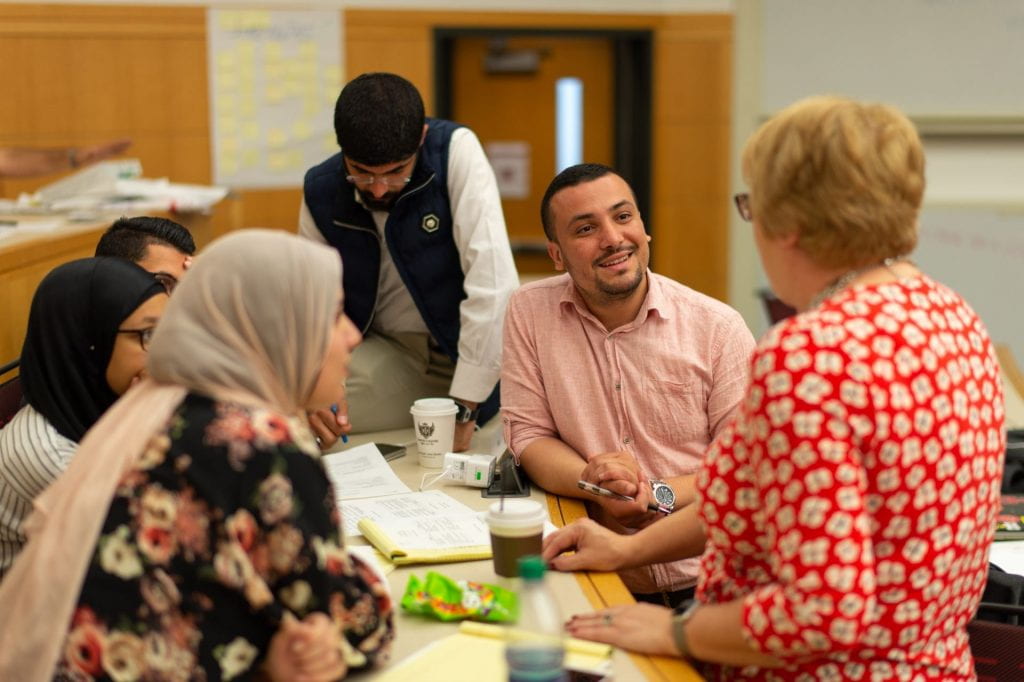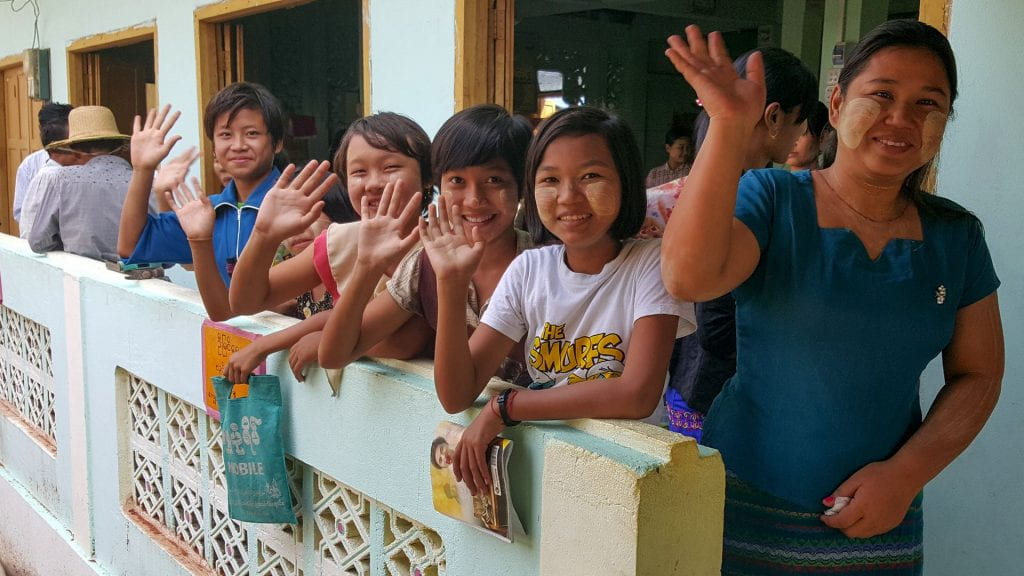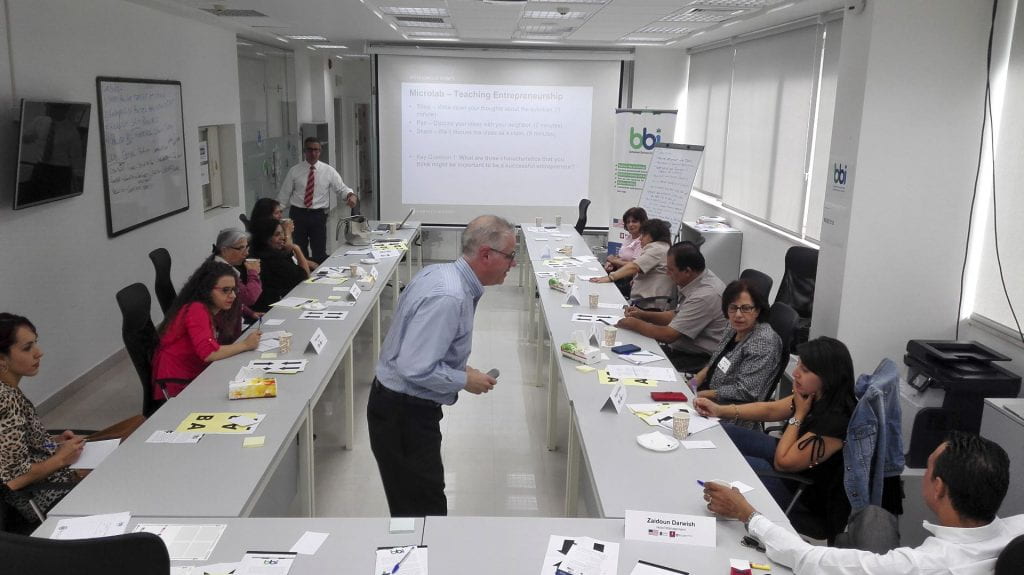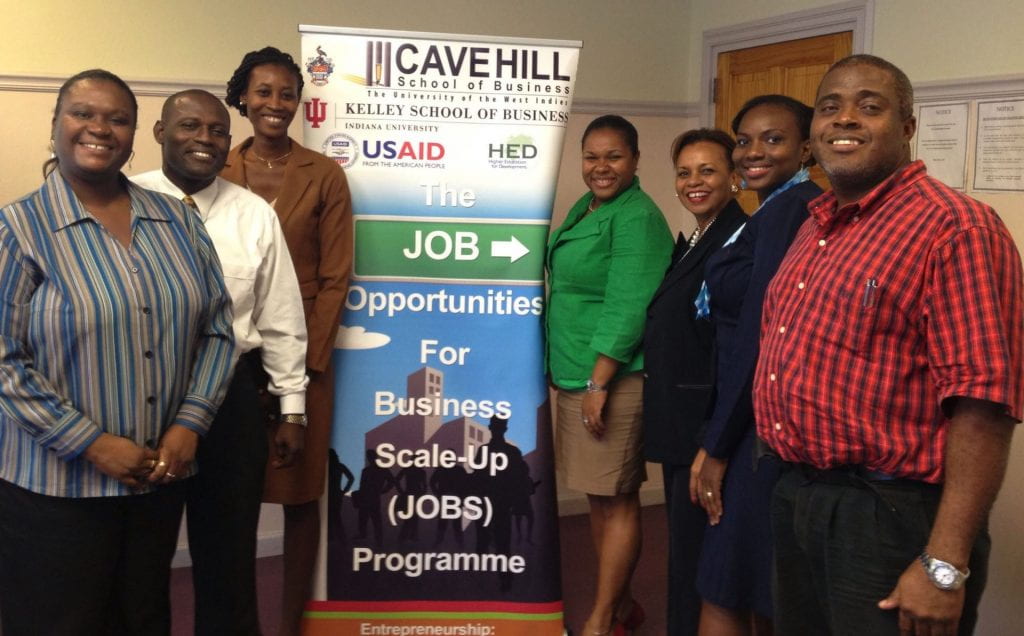BLOOMINGTON, Ind. – People from across the globe came together virtually on Oct. 21 to celebrate the 10th anniversary of the Institute for International Business at the Indiana University Kelley School of Business and participate in roundtable discussions about the importance of global connections.
Live panel discussions and breakout sessions originated from Bangkok, New Delhi, Mexico City and Berlin as global business leaders joined a conversation about “The Importance of Global Connectedness during Disruption and Beyond.” Kelley School Dean Idalene “Idie” Kesner moderated the closing panel from IU Bloomington.
The Institute for International Business was founded in 2010 with the hope of taking the very best of Kelley into the world to help others build the capacity to take on the ongoing disruptions and challenges they confront everyday through education, life management, entrepreneurship, incubation and business skill training.
The COVID-19 pandemic offered a unique context for the organization’s anniversary, said LaVonn Schlegel, the institute’s executive director.
“While others have mentioned to me how sad it is that we’re celebrating our anniversary when everyone’s at home, I kind of see it as the next challenge for IIB,” Schlegel said, adding, “It’s to continue to be in the world, to continue to have these impactful conversations, to continue to work with our partners to bring education and training to our partner communities that allow us to still work toward the most idealistic goal that we had when we set out to do this, which was to change the world.”
Looking back over the last decade, Schlegel and her team — Christine Everett, Tim Smith, Suzanne Lodato, Jeff Pohlen, Ryan Craven, Amanda Wood and Trina Chandler — can proudly point to several examples of projects and initiatives in which the institute and Kelley faculty have made a difference in people’s lives around the globe.
In 2013, the Institute was awarded $1 million from the U.S. Agency for International Development for a project supporting Myanmar’s economic transition. The Advancement and Development through Entrepreneurship Programs and Training Global Development Alliance extended the teaching and outreach capabilities of the Yangon University of Economics and helped small and medium sized enterprises across the country to succeed. The program resulted from the first bilateral agreement between the United States and Myanmar (also known as Burma) since 1957.
Impact of the program included the donation of more than 1,900 books by Kelley faculty (79 boxes and three tons of textbooks in all) to the Yangon University of Economics Library. Thirteen training centers were opened throughout the country offering business and life skills training more than 5,000 people.
Two notable efforts involved the Middle East. Sponsored by the U.S. Department of State under the Middle East Partnership Initiative and in partnership with Bethlehem University, the Building Entrepreneurship Excellence and Developing Economic Enterprises project helped foster sustainable growth by enhancing the entrepreneurial environment in the West Bank, specifically in Bethlehem, East Jerusalem and the southern region of the West Bank. It led to the development of a business incubator with a special focus on aiding women and young people between 15 and 28 years of age. Impact includes 13 new start-ups launched including women or youth in all 13 leadership teams and more than 1,300 participants in the incubator’s training and service offerings.
Between 2012 and 2018, the Institute for International Business hosted nearly 600 students from across the Middle East and North Africa for an “entrepreneurship boot camp” and leadership development program called the Global Business Institute that helped dozens of young entrepreneurs provide economic opportunities across that region. Supported by the U.S. Department of State and the Coca-Cola Company, the Global Business Institute’s impacts include the launching of 164 businesses in the MENA region with more than 980 jobs created.
Other institute projects included a partnership with the Cave Hill School of Business at the University of the West Indies to help it revamp its entrepreneurship programs for undergraduate and MBA students and bolster business development in the Barbados region.
The Global Women’s Economic Empowerment Initiative — a partnership with the Asia Pacific World Economic Council and the World Federation of Direct Selling Associations – taught women entrepreneurs in developing countries how to start and sustain their own micro-ventures, beginning in Malaysia.
For more than a quarter century, Kelley has supported the national goal of the Title-VI-funded Center for International Business Education and Research (CIBER) program to advance the study and teaching of international business and to support research that helps the United States remain competitive in the global marketplace. In 2018, it was awarded a $1.28 million Title VI grant from the U.S. Department of Education. Impacts include providing study abroad scholarships to students to support their first international travel experience, working with minority-serving institutions throughout the Midwest to improve their international business programs for faculty and students, and providing intern support to small and medium businesses interested in expanding internationally.
A common outcome of IIB’s projects has been to help many accomplish things that otherwise might not have been possible. “Whether we are working with women in Myanmar, entrepreneurs in the Middle East or small businesses in the U.S., we try to keep the principle of ‘three degrees to change’ in mind,” Schlegel said. “All it takes is a small shift in knowledge, understanding or action to begin making a difference.
“Ten years later I am proud to say that IIB and Kelley have made a difference in the world,” she added. “Our successes belong to our staff, our faculty and partners who help us create the moments of opportunities that turn into momentum of change every day.”
The events on Oct. 21 were presented in partnership with Kelley and IU’s alumni associations, the IU Office of the Vice President for International Affairs and IU’s Global Gateway Network. Similar roundtable discussions based on the outcomes of the discussions will be organized in the near future.



